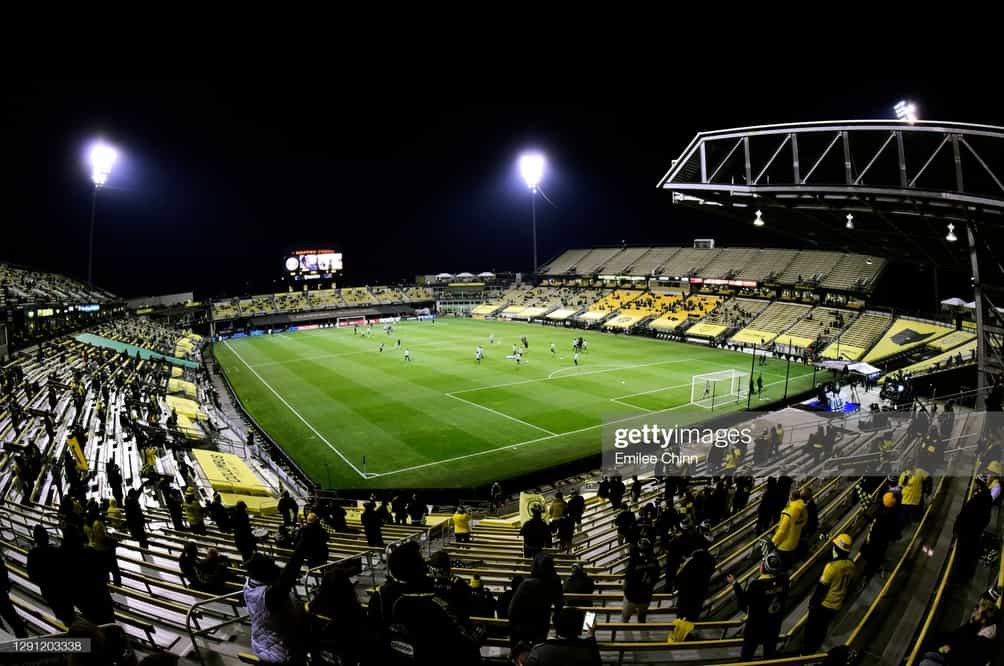The day was one of celebration and relief, as well as pride that a supporter lead movement could take on the might of a club owner and win. That day the task seemed complete, but just under two years later, pressure on the powers-that-be in Columbus has returned with the third of a trifecta of ill-conceived MLS rebrands in the last two years.
Forever Columbus’ club.
— The Crew (@ColumbusCrew) May 9, 2021
Forever known as The Crew.
#Crew96 pic.twitter.com/HMVdc3X9Fp
Rebrands are designed to offer fresh hope, ideas and reignite a franchise but in the case of Columbus, the Crew have followed the Chicago Fire and Montreal Impact in actively alienating their fanbase - showing how, despite the importance clubs claim their active fanbases have, supporters are being forced to fight for their right to support the team they want.
This, twinned with the unoriginal, euro-centric renaming of teams takes away from what makes Major League Soccer so beloved.
Obscure names remain synonymous with US Soccer and names like the Crew, Earthquakes and Revolution offer individualistic recognition in ways clubs such as Atlanta United, LAFC and Nashville SC cannot and, as much as the announcements of the rebrand read “We Are The Crew”, the lack of a nickname suggests a turn to a more bland, less evocative name.
The more surreal club names may deviate from the majority of the wider footballing world, but these are privileges new teams are able to use to their advantage, rather than simply not accept their differences and force themselves into a mould set by over 150 years of history.
These rebrands are huge announcements for MLS clubs and, as a result, their fanbases; so it would only make sense for the ownership of clubs to ensure the rebrand will be well received by those who put their time, money and bodies into supporting and raising the profile and reinforcing the identity of franchises.
If you’ve been following MLS rebrands over the last couple of years, you will already know this is not the case. The announcements from Montreal, Chicago and Columbus were all met by widespread condemnation at the lack of consultation with fanbases.
Ultras Montréal of the Quebec club claimed the change from Impact to Club de Foot Montréal and the subsequent badge change “tramples on [the club’s] history” and “attracts ridicule.”
Il est plus que temps de vous montrer à l'écoute de vos supporteurs. #IMFC #TousEnsemble pic.twitter.com/7eNs9ACAUb
— Ultras Montréal (@ultrasmontreal) February 12, 2021
Of the three clubs mentioned, the Chicago Fire are the only franchise to recognise their mistake following changes to the club colours, name and, most controversially, badge in November 2019. After mass fan protests, the club announced a new badge will be ready for the 2022 season - this process has already begun with focus groups and fan surveys, ensuring the supporters actively feel a connection to the future of the club following a turbulent last eight or so years.
Albeit late, this acceptance of wrongdoing is something that can equally revitalize a franchise as much as a well-thought-out project to change the image of a club. When the Fire finally announce the new badge following months of fan discourse, it may not erase the issues of the past, but the change and the method of finding the correct concept will truly offer a positive start for the club once again.
From a wider perspective, the importance of ensuring Major League Soccer is able to stick to its history of obscure names comes from the league’s wider image. With perception clearly more important than ever, standing out from the crowd of leagues around the world ensures a defining image the league is pining for - the worst way to stand out from the crowd is to follow them, and unless MLS franchises understand this, they will slowly drift towards the monotony of ‘United’ and ‘City’.










































